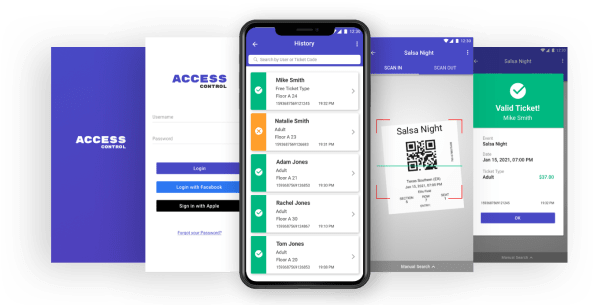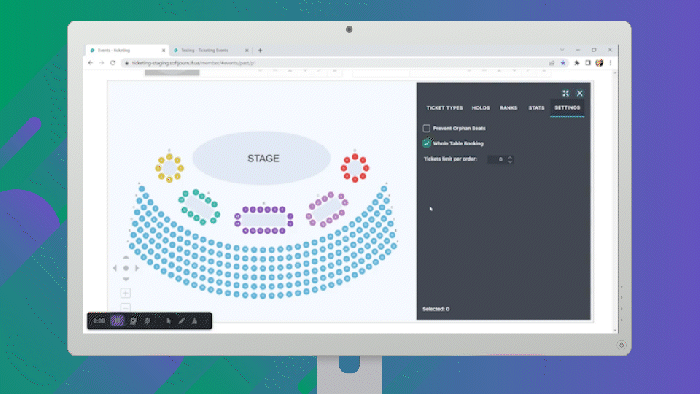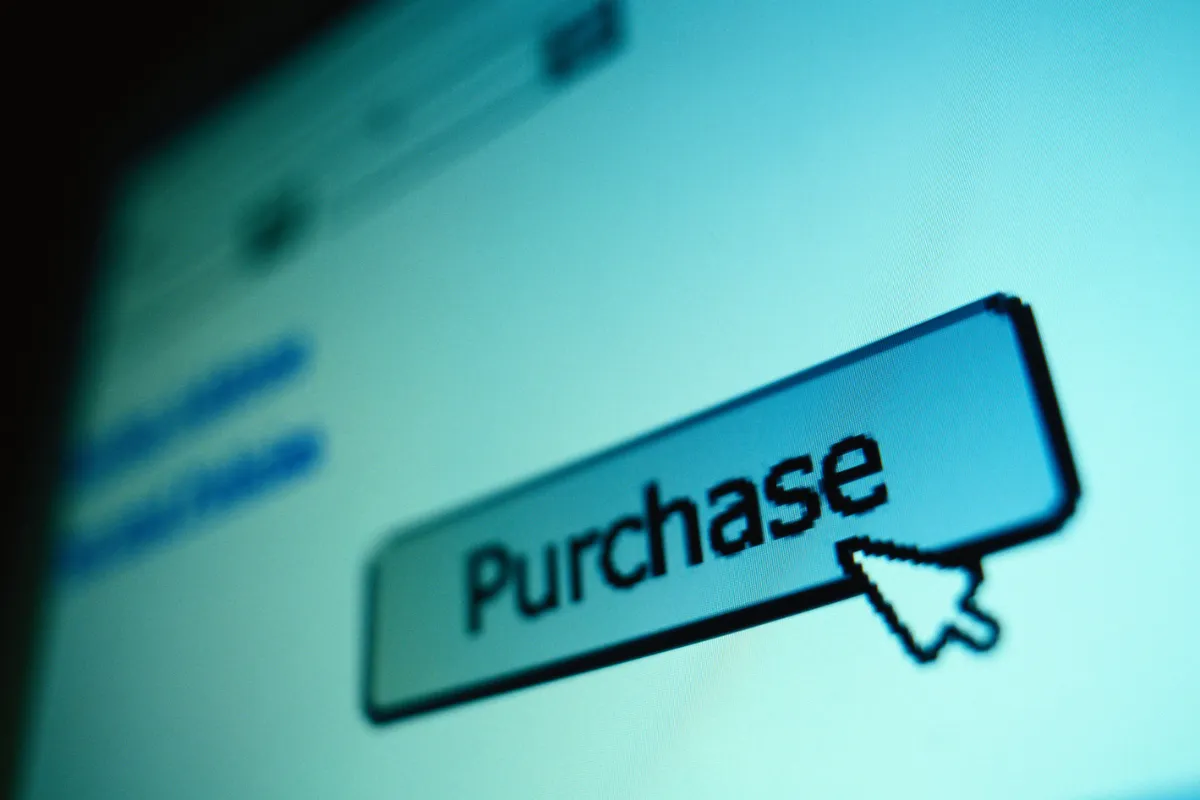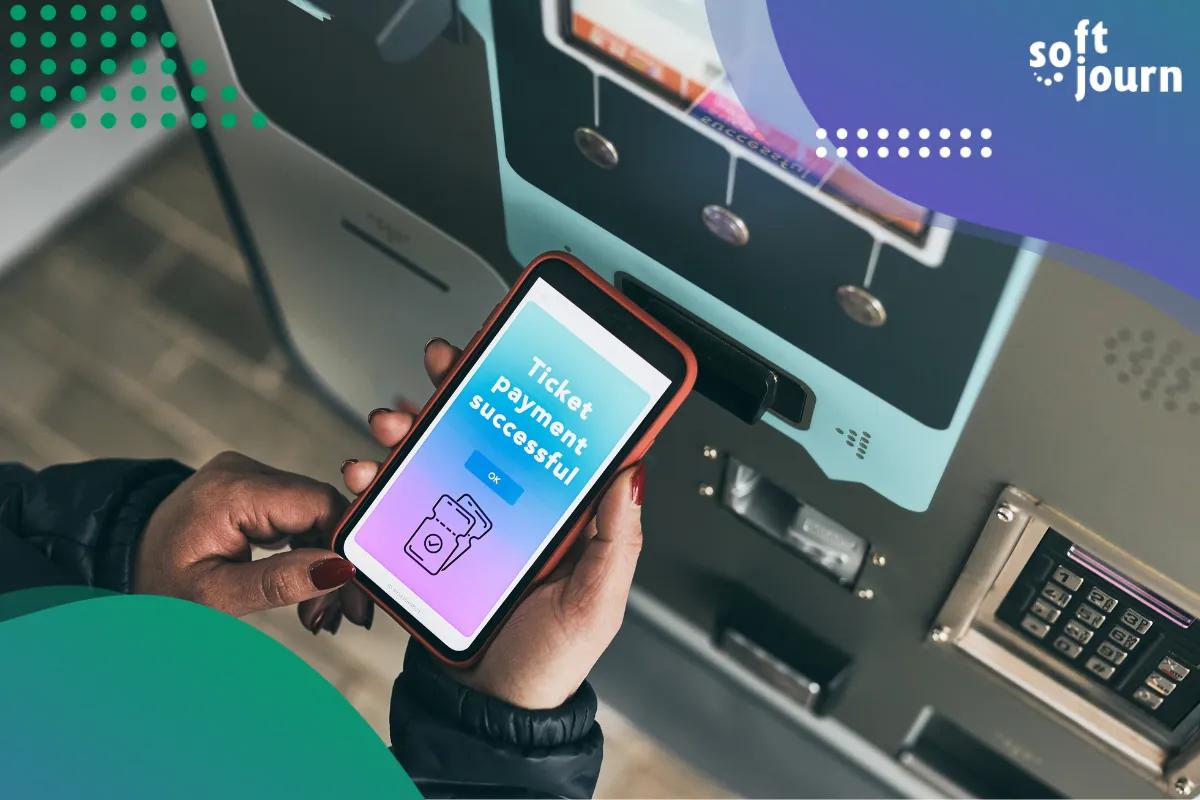Selling tickets online is more competitive than ever, and event organizers need strategic approaches to maximize sales.
Whether you're hosting a concert, conference, or sports event, understanding your audience and leveraging the right marketing tactics can make all the difference.
In this guide, we’ll help you tap into top ticketing strategies to help increase your online sales, from crafting compelling event listings to optimizing your ticketing platform.

Understanding Your Audience
Who is Your Target Audience?
Defining your audience is foundational to a successful ticketing strategy. Tailoring marketing messages, ticket pricing, and promotional campaigns to specific demographics—such as age, interests, location, and purchasing behavior—enhances appeal.
For instance, recognizing that the majority of consumers purchase event tickets only a few times a year can inform targeted marketing efforts.
What are Their Preferences and Behaviors?
Analyzing data from past events and ticketing platforms reveals purchasing patterns. Some attendees plan months ahead, while others buy at the last minute. With mobile purchasing on the rise, ensuring your ticketing platform is mobile-friendly is essential.
Understanding preferences for general admission versus VIP experiences allows for tailored ticketing options, maximizing sales and satisfaction.
How to Segment Your Audience for Targeted Marketing
Segmenting your audience based on purchase history and engagement levels enables personalized marketing. Offering VIP upgrades to repeat customers or discounts to first-time buyers can incentivize purchases.
Geographic segmentation ensures that localized events reach the appropriate audience. Personalized emails and retargeting ads contribute to higher conversion rates and a successful ticketing strategy.
Creating Compelling Event Listings

What Elements Make an Event Listing Attractive?
A well-crafted event listing serves as your primary sales pitch. The title should immediately grab attention, clearly communicating the event's essence and appeal. A compelling description should list essential details while creating excitement and anticipation.
Highlighting key attractions, special performances, guest speakers, or unique experiences sets your event apart.
The Importance of High-Quality Images and Videos
Visual storytelling is a powerful tool in event promotion. High-quality images offer potential attendees a glimpse into the event's atmosphere, while videos provide immersive previews.
Behind-the-scenes footage, clips from past events, and attendee testimonials add credibility and increase interest. Investing in professional photography and videography can significantly boost ticket sales.
Details You Should Include to Drive Interest
Your event listing should be comprehensive yet concise. Beyond date, time, and location, include information on ticket pricing, available packages, and any early bird discounts.
Clear calls-to-action (CTAs) like "Get Your Tickets Now" or "Limited Availability – Buy Today" create urgency. Incorporating social proof, such as positive testimonials or media coverage from past events, enhances credibility and reassures potential buyers.
Leveraging Social Media for Promotion

Which Social Media Platforms are Most Effective for Event Promotion?
Choosing the right social media platform depends on your audience. Facebook is excellent for creating event pages and running targeted ads. Instagram and TikTok thrive on visual content, making them ideal for showcasing engaging previews and behind-the-scenes footage.
LinkedIn works well for professional events and industry conferences. A multi-channel approach ensures maximum exposure.
Best Ways to Create Shareable Content to Increase Visibility
Engagement is key to a successful social media campaign. Encourage attendees to share the event by offering incentives such as contests, giveaways, or exclusive perks for referrals.
Creating a unique event hashtag and using interactive features like polls, Q&A sessions, and live videos can drive engagement. Partnering with influencers and industry personalities helps your event reach a wider audience organically.

Using Influencer Marketing to Boost Event Ticket Sales
In today's digital landscape, influencer marketing has become a game-changer for event promotion. By leveraging the trust and reach of influencers, event organizers can significantly enhance visibility, credibility, and engagement, ultimately driving ticket sales.
According to a 2024 report, 74% of US shoppers have purchased a product because a social media influencer recommended it, and this is no different for events. User-generated and influencer content often outperforms brand-generated content in engagement, and micro-influencers—those with smaller but highly engaged followings—tend to have the highest engagement rates.
Brands also see a substantial return on investment, with an average of $4.12 earned for every $1 spent on influencer campaigns on Instagram. This organic engagement helps events stand out in crowded digital spaces and encourages potential attendees to take action.
How to Use Influencers to Promote Your Event

Find the Right Influencers
Selecting influencers whose audience aligns with your event's target demographic is crucial. It’s not just about follower count but rather engagement and relevance.
According to the HubSpot 2024 Social Media Marketing Report, 64% of marketers have collaborated with micro-influencers, and 47% reported achieving the most success with these partnerships.
Encourage influencers to produce authentic content that aligns with their style while promoting your event. Some effective content strategies include:
- Behind-the-scenes previews of event preparations.
- Live streaming Q&A sessions with keynote speakers or performers.
- Giveaways and contests where influencers' followers can win free tickets.
- Event day takeovers on social media platforms to showcase the experience in real time.
Example of Influencer Marketing Success in Events: HubSpot's INBOUND Conference
HubSpot partnered with industry experts like Neil Patel and Ann Handley, integrating them into keynotes and workshops. This strategy resulted in over 12,000 in-person attendees and 100,000 online viewers, significantly boosting brand authority.

Maximizing Event Revenue With Strategic Ticket Pricing
Pricing your event tickets effectively is a crucial factor in driving attendance and maximizing revenue. A well-planned pricing strategy not only attracts attendees but also creates urgency, enhances perceived value, and encourages upgrades.
Let’s explore proven pricing strategies that event organizers can leverage to sell more tickets.
Using Anchoring to Influence Perceived Value
What is Anchoring?
Anchoring is a cognitive bias in which people rely on the first piece of information they see when making decisions. In event pricing, the “anchor” is the higher regular price, which makes a discounted ticket appear more valuable.
How to Implement Anchoring Effectively:
- Set a Higher Regular Price: If your early-bird ticket is $150, set the regular price at $250. This contrast makes the discount appear more attractive.
- Highlight the Discount Clearly: Use phrasing like “Save $100 if you book now!” to reinforce the perceived savings.
- Show Price Changes Over Time: Communicate that prices will increase as the event date approaches, using countdowns and promotional messaging.
Example in Action:
The annual TechCon conference provides early bird pricing for attendees who register within the first month after registration opens. These early registrants not only benefit from discounted rates but also gain exclusive access to pre-conference workshops and networking events, enhancing the overall value of early registration.
According to the organizer, "By offering discounted rates and exclusive incentives to early registrants, we've observed a significant increase in early registrations and overall event attendance.”

Create Urgency with Scarcity-Driven Pricing
Why Scarcity Works
When attendees believe tickets are in short supply, they are more likely to commit. Scarcity marketing can boost sales by up to 226% when used effectively. Limited availability triggers FOMO, compelling attendees to purchase before it’s too late.
How to Implement Scarcity Effectively:
- Limit Ticket Availability: Offer a set number of discounted early-bird tickets, e.g., “Only 100 tickets at this price!”
- Set Clear Deadlines: Promote time-sensitive offers, such as “Early-bird pricing ends in 48 hours!”
- Use Countdown Timers: Websites with countdown clocks showing when a pricing tier expires create a sense of urgency.
- Show real-time ticket sales (“Over 500 tickets sold!”)..
Example in Action:
SXSW uses exclusive discount codes and limited-quantity VIP tickets to drive early sales, leading to a measurable spike in ticket purchases. For example, in 2026, by buying the limited presale tickets, attendees can guarantee their spot at next year's SXSW Conference & Festivals and get exclusive access to hotels before they open to the general public.

Implementing Tiered Pricing to Maximize Revenue
What is Tiered Pricing?
Tiered pricing offers multiple ticket levels, each with increasing benefits. This strategy allows you to cater to different budget levels while making higher-priced options feel more premium.
How to Structure Tiered Pricing:
- Create Multiple Ticket Levels: Offer Standard, Premium, and VIP tiers, each with unique benefits.
- Highlight the Differences: Make it clear why each tier is priced differently (e.g., reserved seating, meet-and-greet access, early entry).
- Incentivize Upgrades: Display limited availability for premium tiers, such as “Only 20 VIP tickets left!”
Example in Action:
SimpleTix's analysis of over 1,000 events indicates that strategic tiered pricing can drive 25-40% more revenue while attracting larger audiences. They highlight that restructuring pricing tiers through specialized ticketing software can significantly increase revenue for event organizers.

Optimizing Revenue with Dynamic Pricing
What is Dynamic Pricing?
Dynamic pricing adjusts ticket costs based on demand, time left before the event, and purchasing trends. Airlines and hotels use this strategy—why not events?
How to Implement Dynamic Pricing:
- Increase Prices as Demand Rises: As ticket sales climb, adjust pricing accordingly.
- Offer Last-Minute Flash Sales: Lower prices briefly for final tickets to sell out the event.
- Track Purchase Patterns: Use analytics to determine peak buying times and optimize pricing.
Example in Action:
By implementing dynamic pricing strategies, Ballet Arizona achieved a 37% increase in revenue, with ticket sales rising by 24%. This approach led to over $230,000 in additional income.
Implement Early Bird Pricing
Early bird pricing is a promotional strategy that offers customers discounted rates for purchasing tickets or registering for an event within a specified early timeframe. This approach incentivizes prompt action, benefiting both attendees and organizers. For organizers, it means increased early registrations, improved cash flow, and enhanced event promotion.
Implementing Early Bird Pricing
- Set Appropriate Discounts: Determine a discount substantial enough to motivate early purchases without significantly impacting overall revenue. For instance, a 10% to 20% reduction is common.
- Define Clear Timeframes: Establish a specific period during which the early bird pricing is available, creating urgency. Typically, these offers are made 10 to 15 weeks before the event.
- Communicate Value Effectively: Highlight the benefits of early registration, such as securing a spot at a lower price and gaining access to exclusive content or perks.
Example in Action
Many technology-focused conferences employ early bird pricing to drive early registrations. For instance, a tech conference might offer early-bird tickets at $199, with the regular price set at $299. This $100 discount serves as a strong incentive for potential attendees to register early, ensuring better financial planning for organizers and a secured spot for attendees.

Maximizing Event Ticket Sales with the Right Technology and Tools
Online ticket sales in the U.S. are continuing to grow, thanks to advancements in ticketing technology and better sales strategies.
To enhance the attendee experience and boost revenue, event organizers should consider integrating the latest ticketing technologies.
Here are some top technologies to consider, along with how Softjourn can assist in their implementation:
Online Ticketing Platforms for Seamless Sales
Why You Need a Dedicated Ticketing Platform
An online ticketing system is the backbone of event sales, offering features like automated sales tracking, mobile ticketing, and secure payment processing. These platforms help organizers manage inventory, prevent overbooking, and provide real-time insights into ticket sales.
Popular Ticketing Solutions Often Focus on:
Softjourn specializes in custom ticketing platform development, helping event organizers integrate seamless payment processing, mobile ticketing, and analytics tools into their systems.
Whether you need a fully customized platform or an enhancement to your existing one, Softjourn has the expertise to bring your vision to life.
Example in Action:
Ticketmaster collaborated with Softjourn to develop a cross-platform ticket-scanning application using Xamarin. This initiative aimed to reduce maintenance efforts associated with supporting separate native iOS and Android codebases.
The Xamarin-based solution successfully streamlined operations and enhanced performance, as evidenced by 200,000 tickets scanned within the initial months of beta testing.

Reserved Seating Tools for an Enhanced Experience
Why Reserved Seating Boosts Sales
A well-designed seating system lets attendees choose their preferred spots, increasing customer satisfaction and reducing abandoned purchases. Many organizers find that events with interactive seat selection see an increase in conversion rates.
Softjourn’s Venue Mapping Tool (VMT) is a white-label, customizable reserved seating solution that enhances ticket sales by:
- Providing an interactive seat selection experience.
- Seamlessly integrating with existing ticketing platforms.
- Offering pricing flexibility for premium seating.
Example in Action:
Ticketbud collaborated with Softjourn to integrate a reserved seating feature into their event management platform using Softjourn's Venue Mapping Tool (VMT).
This enhancement enabled Ticketbud to offer customizable seating arrangements, including options like whole-table booking and flexible seating configurations, thereby attracting new clients and enriching the event experience.
The integration also improved system scalability and introduced advanced reporting capabilities, allowing event organizers to manage events more efficiently.
Ready to optimize ticket sales with interactive seating? Learn more about how our Venue Mapping Tool can enhance your ticketing experience!

Mobile Ticketing & Contactless Check-In
Why Mobile Ticketing Matters
Smartphones are the #1 device for digital shopping globally, with mobile ticketing growing rapidly. By 2026, it’s likely that mobile event ticketing will account for the majority of ticket purchases.
Key Mobile Ticketing Features:
- QR Code & NFC-Based Check-In – Speeds up event entry and eliminates long lines.
- Apple & Google Wallet Integration – Allows attendees to store tickets securely.
- SMS & Push Notifications – Keep attendees informed about ticket status and event updates.
Softjourn develops custom mobile ticketing solutions that integrate with Apple Pay, Google Pay, and QR-based contactless check-in, ensuring a seamless experience for attendees. We also offer an access control app boilerplate that we can tailor to your event in just two weeks.
Example in Action:
Project Admission collaborated with Softjourn to rapidly develop a custom access control application tailored to their specific event requirements.
Leveraging Softjourn's expertise, the Progressive Web App (PWA) was delivered within a tight two-week timeframe, ensuring seamless ticket scanning, access control, and data management functionalities.
This swift development enabled Project Admission to efficiently manage event entry processes, enhancing the overall attendee experience.
Please accept cookies to access this content
AI & Data Analytics for Smarter Pricing and Sales Forecasting
Why AI is Revolutionizing Ticket Sales
AI-powered analytics help event organizers predict demand, optimize pricing, and track buyer behavior.
AI-Driven Tools for Ticketing:
- Tessitura Network – Uses predictive analytics for demand-based pricing.
- Secutix – AI-driven fraud detection and automated ticket resale.
Softjourn leverages AI-driven analytics to help ticketing providers enhance dynamic pricing, fraud detection, and customer behavior insights, ensuring higher revenue and smarter sales strategies.
Example in Action:
An e-commerce platform employed an AI-driven pricing engine to monitor competitor prices, customer behavior, and inventory levels, allowing for real-time price adjustments. This strategy led to a 12% increase in revenue and a 15% improvement in market share.
AI-Powered Event Discovery Chatbots
AI can do more than just analyze sales; it can also help drive them in real time. At Softjourn, our R&D team developed a working proof-of-concept chatbot designed specifically for ticketing platforms. This assistant helps eventgoers find the right event faster by answering natural language queries like:
-
“What live music events are under $50 this weekend?”
-
“Are there any family-friendly shows happening on Saturday?”
-
“What events are trending in my city right now?”
The chatbot connects directly to the platform’s event database, filters results by genre, price, date, and location, and provides personalized recommendations, eliminating the need for users to scroll through endless listings.
But it's not just for users. Ticketing platforms can leverage the chatbot to:
-
Promote underperforming events based on user interest
-
Upsell VIP tickets, merchandise, or add-ons
-
Generate analytics around search trends and user intent
It’s a seamless upgrade to your existing platform with minimal impact on infrastructure - and a clear path to more conversions and higher revenue.
Interested in seeing it in action? Let’s talk.
Enhancing Attendee Engagement
Implement a Referral Program
Why Referral Marketing Works
Referred customers convert at 4X the rate of non-referred customers, and 92% of people trust recommendations from friends and family.
How to Create a Referral Program:
- Give attendees a discount for referring friends.
- Offer speakers & influencers custom referral codes to track their impact.
- Use social sharing incentives (e.g., “Tag a friend for a chance to win free VIP access!”).
Leverage Video Content for Higher Conversions
Why Video Works
21% of landing page visitors who watch a 60-second video are likely to purchase a ticket.
How to Incorporate Video in Ticket Sales:
- Feature event highlight reels from past years.
- Show testimonials from attendees & speakers.
- Use live-streaming previews with event hosts or special guests.

Enhancing Perceived Value with Exclusive Perks and Coupons
Why Perceived Value Matters
Consumers are willing to pay more when they believe they are receiving significant benefits in return. The key is to bundle added value with ticket purchases.
Many consumers actively seek deals, even when not planning immediate purchases. For instance, 92% of consumers say they are looking for deals even when they aren’t actively shopping.
How to Increase Perceived Value:
- Offer Bonus Incentives: Provide VIP experiences, networking sessions, or exclusive event content for early ticket buyers.
- Showcase Success Stories: Feature past attendees who benefited from the event, increasing credibility.
- Promote Learning & Experience: Highlight key speakers, hands-on workshops, and career-boosting opportunities.
- Discounted group tickets: Encourage friends and colleagues to attend together.
Run Contests & Giveaways to Generate Buzz
Why Contests Work
Contests create excitement and encourage sharing. For instance, contests on Instagram receive 64 times more comments and 3.5 times more likes compared to regular posts. Additionally, a study by Easypromos revealed that Facebook giveaways generate 1,000% more interactions than standard posts.
How to Run a Successful Giveaway:
- Offer free tickets as prizes.
- Require participants to tag friends & share posts.
- Partner with sponsors for bigger rewards.

Final Word
Maximizing event ticket sales requires a combination of smart marketing, audience engagement, and an optimized ticketing process. By leveraging these strategies, you can increase online ticket sales and ensure a successful event.
Did you know Softjourn can help you optimize your ticketing platform - from expert ticketing consultation and team augmentation to implementing AI, blockchain, and other innovative ticketing solutions? Contact us today and discover why we've been trusted by leading ticketing companies for over 20 years.


























